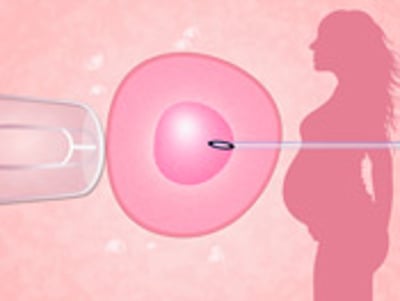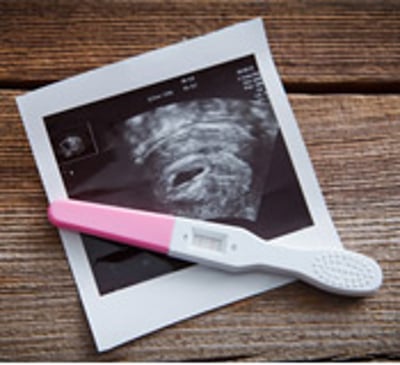FORCE's eXamining the Relevance of Articles for You (XRAY) program looks behind the headlines of cancer news to help you understand what the research means for you.
XRAY is a reliable source of hereditary cancer research-related news and information.
Learn more about the XRAY program
Keyword: fertility
Study : Pregnancy around the time of a breast cancer diagnosis does not negatively affect survival
Most relevant for: Young women diagnosed during or right after pregnancy and young survivors considering pregnancy after breast cancer
The number of women who become pregnant around the time of, or after a breast cancer diagnosis is increasing. However, it is unclear whether pregnancy around the time of a breast cancer diagnosis impacts survival. This recently published study demonstrates that the timing of pregnancy does not negatively affect breast cancer survival rates. (5/24/17)
Read More
Study : Does IVF increase a woman’s risk for breast cancer?
Most relevant for: Woman at average risk for breast cancer who have or are considering undergoing In Vitro Fertilization
In vitro fertilization (IVF) wasn't commonly used until the 1980s, so its long-term effects are mostly unknown. A new study suggests that the treatment does not increase a woman's risk for developing breast cancer. (8/23/16)
Read More
Relevance: Medium


Strength of Science: Medium


Research Timeline: Human Research


Study : Do BRCA mutations affect fertility?
Relevance: Medium


Strength of Science: Medium


Research Timeline: Human Research


Most relevant for: Women with a BRCA mutation who want to become pregnant
Age affects fertility. As women age, their ovaries release eggs that are not as healthy as those released in younger women. Fewer eggs are released each menstrual cycle as women age, making it harder for older women to become pregnant. Are women with BRCA mutations less fertile? Previous research suggested that BRCA mutations might affect women's fertility as she ages. A recent study found that BRCA1 mutation carriers may have slightly lower fertility than women without the same mutation, but more research is needed before this finding is useful for medical decision-making. (5/24/16)
Read More
Study : Effects of cancer diagnosis and treatment during pregnancy on the health and development of the child
Most relevant for: Women who were diagnosed with breast cancer while pregnant
Very little work has studied how a woman's cancer diagnosis and treatment during pregnancy affects her child. This study of women who were diagnosed with cancer while pregnant looks at their children at ages 18 months and 3 years. The study found no difference in general, cognitive, and cardiac development when compared to children born to healthy mothers. (12/08/2015)
Read More
Relevance: Medium


Strength of Science: Medium-Low


Research Timeline: Human Research


Study : Breastfeeding may reduce hormone receptor negative breast cancer risk
Relevance: Medium


Strength of Science: Medium-Low


Research Timeline: Human Research


Most relevant for: Women who are pregnant or have just given birth and are deciding about breastfeeding
Previous studies have shown that women who breastfeed have a reduced breast cancer risk. This study examines this association in the different breast cancer subtypes (ER, PR, HER2 negative/positive) and finds that breastfeeding is associated with a reduced risk of ER-/PR- breast cancer. (11/16/2015)
Read More
Relevance: Medium-Low


Strength of Science: Medium-Low


Study : Prenatal exposure to the pesticide DDT and breast cancer risk
Relevance: Medium-Low


Strength of Science: Medium-Low


Most relevant for: Women with prenatal exposure to DDT, women in countries where DDT is used
This study found an association between prenatal exposure to the pesticide DDT, and an increased risk of women developing breast cancer. While this study does not prove that DDT exposure directly causes breast cancer, it serves as a reminder that pregnant women's exposure to toxic environmental agents can affect their children's risk for disease later in life.
Read More